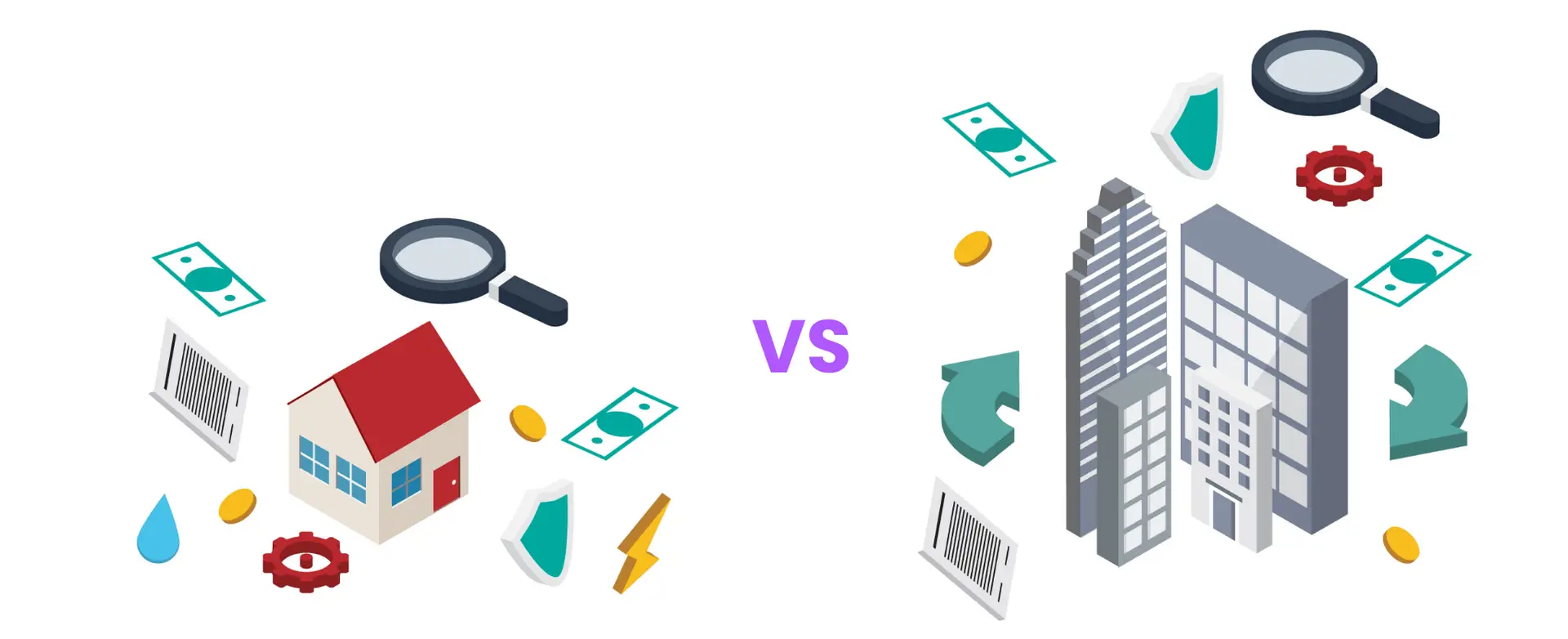Real estate has long been considered a safe haven in the world of investments. But, when interest rates rise, many foreign investors question the profitability of long-term residential rental property investments in the United States.
Is investing in real estate still a good move, even with rising interest rates? This question is not just relevant but crucial in our current economic climate.
This blog post aims to shed light on this pressing question. We will examine the influence of interest rates on the property market and explore the potential benefits of residential rental properties as a viable investment option, despite the high interest rates.
Whether you’re dipping your toes into the world of real estate or have already begun building your portfolio, this post will provide insights that could help shape your investment strategy.
How Rising Interest Rates Impact Real Estate Investments
Lower interest rates make borrowing money less expensive, making it more affordable for investors and homebuyers to purchase properties. This affordability can stimulate demand in the housing market, potentially driving up property prices. During periods when the Fed increases interest, the cost of borrowing also increases, which may result in reduced affordability and dampen demand over the short-term.
Interest rate hikes, however, aren’t necessarily bad news for real estate investors. That’s because landlords might have more leeway to increase rental rates during periods of economic growth and inflation, leading to an increase in net operating income (NOI) and higher capitalization (cap) rates with potentially greater returns.
Additionally, as mortgage rates rise, fewer Americans may be able to afford to buy homes due to increased borrowing costs and larger monthly payments. This scenario could increase the demand for rental properties, allowing real estate investors to capitalize on a larger pool of potential tenants. In fact, this trend has been observed historically where higher interest rates have resulted in a bolstered rental market.
However, it’s important to note that real estate markets don’t adjust to rate increases overnight. It can take time for these changes to permeate through the market and influence property values and rental rates. Therefore, patience and strategic planning are key in navigating the U.S. real estate market amidst fluctuating interest rates.
Residential vs. Commercial Real Estate

There are two primary sectors in real estate investment: residential and commercial real estate. Each offers unique benefits and challenges, and in periods of high interest rates, the dynamics of real estate investment can shift notably.
Residential Real Estate
Residential real estate encompasses properties where people live, like single-family homes, apartments, and townhouses. One significant advantage of residential real estate during high-interest-rate periods is its inherent demand stability.
Even when rates rise, people will always need a place to live. If purchasing a home becomes too expensive due to high interest rates, more people may turn to rentals, potentially boosting rental income for property owners.
Another key advantage of residential real estate is its relative simplicity. The concepts and processes involved are easier for most people to understand because they’re familiar with their own housing experiences. Plus, residential properties usually have lower acquisition costs than commercial properties, making it more accessible for new investors.
Commercial Real Estate
Commercial real estate includes properties used for business purposes, like office buildings, retail stores, and warehouses. These properties typically offer higher gross income and longer lease agreements than residential real estate.
However, commercial real estate can be more complex and require a larger initial investment. Commercial leases are more intricate, and managing commercial properties often requires a deeper understanding of business needs and commercial law. Additionally, commercial properties may stay vacant longer because finding suitable business tenants takes longer.
While residential real estate offers relative stability due to constant housing demand, commercial real estate can face more significant risks if business tenants struggle with rising rates. As an investor, understanding these nuances can help you make informed decisions tailored to your risk tolerance and investment goals.
Benefits of Investing in Residential Rental Properties
Investing in residential rental properties offers a wealth of benefits, particularly in generating sustainable cash flow and potential for long-term growth. Whether it’s single-family rentals (SFRs) or multifamily properties, each provides unique opportunities:
Consistent Cash Flow
One of the most compelling reasons to invest in residential rental properties is the consistent cash flow they can generate. Tenants pay rent regularly, providing a steady income stream that can help cover mortgage payments, property maintenance, and other expenses. This reliable income can be especially beneficial during periods of economic uncertainty or market volatility.
Impact of Rising Interest Rates
Interestingly, rising interest rates can positively impact rental income and profitability. Homeownership may be out of reach for some as borrowing becomes more expensive, increasing the demand for rental properties. This heightened demand can allow property owners to increase rental rates, potentially boosting their income.
Single-Family vs. Multifamily Rentals
Both single-family and multifamily rentals offer significant advantages. Single-family homes often attract long-term tenants, offering stability and lower turnover. On the other hand, multifamily properties can generate higher gross rental income due to multiple rent-paying units in one location. Even if one unit is vacant, income from the other units can help cushion the financial impact.
Advantages Despite High Interest Rates

Even during periods of high interest rates, investing in residential rental properties can be advantageous. Residential investment properties are typically financed with fixed-rate loans with longer terms than commercial loans. The mortgage payment remains constant over the life of the loan, regardless of interest rate fluctuations. Moreover, if interest rates begin to decline, there’s often the option to do a cash-out refinance, further enhancing the investment’s flexibility.
How To Invest in Real Estate When Interest Rates Are High
- Consider Fixed-Rate Mortgages: Fixed-rate mortgages offer predictability, as the interest rate remains constant throughout the life of the loan. Your monthly mortgage payments won’t increase, even if interest rates do.
- Leverage Rental Properties: As mentioned earlier, rising interest rates can lead to increased demand for rentals. There is an opportunity to generate higher rental income, which can help offset the cost of higher interest loans.
- Look for Value-Add Opportunities: Properties that need improvements or renovations can often be purchased at lower costs. By adding value to these properties, you can increase their rental potential and overall market value, helping to counteract the impact of high interest rates.
- Ensure Adequate Cash Reserves: It’s always wise to have a substantial cash reserve when investing in real estate. This becomes even more critical during periods of high interest rates, as it provides a safety net for unexpected costs or vacancies.
- Be Patient and Strategic: Real estate is typically a long-term investment, and keeping this perspective during periods of high interest rates is essential. Be patient, make strategic decisions, and remember that interest rates are just one factor among many in the real estate market.
Navigating the Investment Landscape
Despite the changing economic landscape and potential challenges of rising interest rates, the viability of real estate investment in the US remains strong. It provides income generation and capital growth opportunities, making it a valuable addition to any investment portfolio.
Foreign investors can unlock significant revenue potential in the US property market. However, navigating this terrain requires a reliable and experienced team of professionals.
An investor-friendly real estate agent, with their extensive knowledge of the local market, can guide you in identifying properties that align with your investment goals. A local property management company can ensure the smooth running of your investment, handling everything from tenant issues to maintenance and repairs.
Financing is also a critical aspect of real estate investment, and this is where Lendai steps in.
As a fintech lender, Lendai is revolutionizing how foreign investors access financing for US residential properties. Our unique AI algorithms and online platform simplify the traditionally complex and time-consuming process, making it faster and more efficient.
Lendai’s partnerships with top-notch real estate professionals, property management companies, Insurance provider and Legal and Tax services, further enhance our offering, providing foreign investors with a seamless and comprehensive solution. This global tech company is not just facilitating access to US financing – it’s leveling the playing field for foreign investors.






